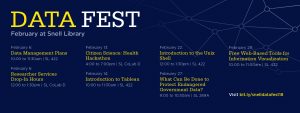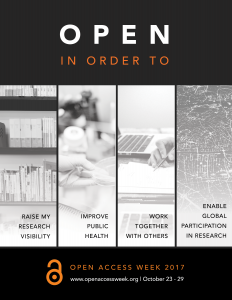Using AI to Automate Library Captioning
Captions play a key role in making audio and video content accessible. They benefit not only deaf and hard-of-hearing users, but also second-language learners, researchers scanning interviews, and anyone viewing content in noisy environments.
At the Northeastern University Library, we manage a growing archive of media from lectures and events to oral histories. Manually creating captions for all of this content is not a scalable solution, and outsourcing the task to third party services can be expensive, time-consuming, and inconsistent. Motivated by this, we have been exploring AI-powered speech-to-text tools that could generate high-quality captions more efficiently and cost-effectively.

We started by testing Autosub, an open-source tool for generating subtitles. Even using a maintained fork (copies of the original project that add features, fix bugs, or adapt the code for different use cases), Autosub did not offer significant time savings, and it was eventually dropped.
In summer 2023, the team began using OpenAI’s Whisper, which immediately cut captioning time in half. However, it lacked key features like speaker diarization (the process of segmenting a speech signal based on the identity of the speakers), and it often stumbled on long stretches of music or background noise which would require extra cleanup and made the output harder to use at scale.
As the AI for Digital Collections co-op on the Digital Production Services (DPS) team, I was responsible for researching and testing Whisper forks that could be realistically adopted by our team. I tested model performance, wrote scripts to automate captioning, debugged issues, and prepared tools for long-term use within our infrastructure.
Phase 1: Evaluating Whisper Forks
We looked for a model that could:
- Handle speaker diarization
- Distinguish between speech and non-speech (music, applause, etc.)
- Output standard subtitle formats (like VTT/SRT)
- Be scriptable and actively maintained
We tested several forks, including WhisperX, Faster Whisper, Insanely Fast Whisper, and more. Many were either too fragile, missing key features, or poorly maintained. WhisperX stood out as the most well-rounded: it offered word-level timestamps, basic diarization, reasonable speed, and ongoing development support.
Phase 2: Performance Testing
Once we chose WhisperX, we compared its various models to OpenAI’s original Whisper models, including large-v1, v2, v3, large-v3-turbo, and turbo. We tested six videos, each with different lengths and levels of background noises, and compared the models based on Word Error Rate (WER) (how often the transcription differed from a “gold standard, or human-created or -edited transcript), and processing time (how long it took each model to generate captions).
WhisperX’s large-v3 model consistently performed well, balancing speed and accuracy even on noisy or complex audio. OpenAI’s turbo and large-v3-turbo delivered strong performance but lacked diarization features.
Phase 3: Timestamp Accuracy Evaluation
Next, we assessed how precisely each model aligned subtitles to the actual audio — crucial for usability. We compared outputs from the WhisperX large-v3 model and the OpenAI turbo and large-v3-turbo models.
We used a gold standard transcript with human-reviewed subtitles as our benchmark. For each model’s output, we measured:
- Start Mean Absolute Error (MAE) — average timing difference between predicted and actual subtitle start times
- End MAE — same as Start MAE, but for subtitle end times
- Start % < o.5s — percentage of subtitles with start times less than 0.5 seconds off
- End % < 0.5s — same for start % < 0.5s, for end times
- Alignment rate — overall percentage of words correctly aligned in time
WhisperX’s large-v3 model outperformed all other models significantly. In most of our test videos, it showed:
- Much lower MAE scores for both start and end timestamps
- Higher percentages of accurately timed subtitles (within the 0.5-second range)
- Better overall word alignment rates
In fact, in several test cases, WhisperX was nearly three times more accurate than the best-performing OpenAI Whisper models in terms of timing precision.

In one particular case, one WER result for WhisperX large-v3 showed a surprisingly disappointing score of 94% errors. When I checked the difference log to investigate, it was that the model had transcribed background speech that was not present in the gold standard transcript. So, while it was technically penalized, WhisperX was actually picking up audio that the gold standard did not include. This highlighted both the model’s sensitivity and the limitations of relying solely on WER for evaluating accuracy.
Figure 2 shows exactly that. On the left, WhisperX (denoted “HYP”) transcribed everything it heard, while the gold standard transcript (denoted “REF”) cut off early and labeled the rest as background noise (shown on the right).
What’s Next: Integrating WhisperX
We have now deployed WhisperX’s large-v3 model to the library’s internal server. It’s actively being used to generate captions for incoming audio and video materials. This allows:
- A significant reduction in manual labor for our DPS team
- The potential for faster turnaround on caption requests
- A scalable solution for future projects involving large media archives
Conclusion
As libraries continue to manage growing volumes of audio and video content, scalable and accurate captioning has become essential, not only for accessibility, but also for discoverability and long-term usability. Through this project, we identified WhisperX as a practical open-source solution that significantly improves transcription speed, speaker diarization, and timestamp precision. While no tool is perfect, WhisperX offers a strong foundation for building more efficient and inclusive media workflows in the library setting.
Reflections and Acknowledgements
This project helped me understand just how much thought and precision goes into building effective captioning systems. Tools like WhisperX offer powerful capabilities, but they still require careful evaluation, thoughtful tuning, and human oversight. I am incredibly grateful to have contributed to a project that could drastically reduce the time and effort required to caption large volumes of media, this way enabling broader access and creating long-term impact across the library’s AV collections.
Finally, I would like to thank the Digital Productions Services team for the opportunity and their guidance and support throughout this project — especially Sarah Sweeney, Kimberly Kennedy, Drew Facklam, and Rob Chavez, whose insights and feedback were invaluable.



